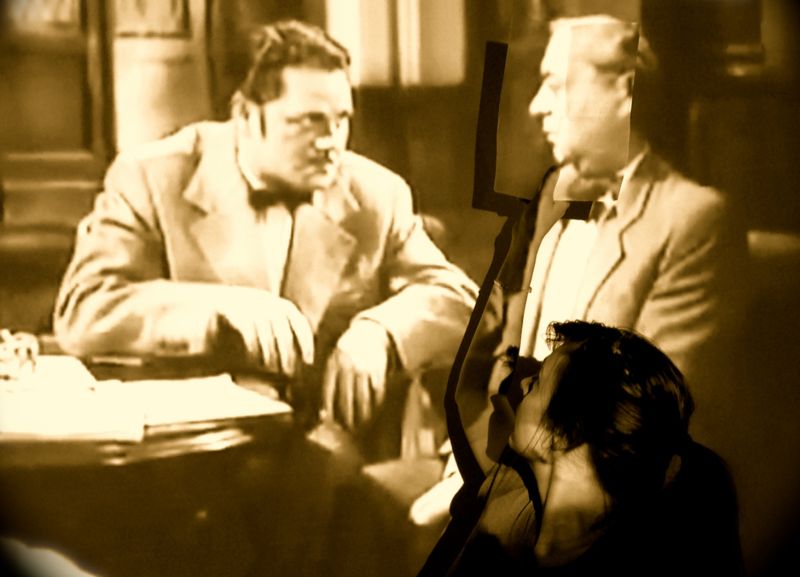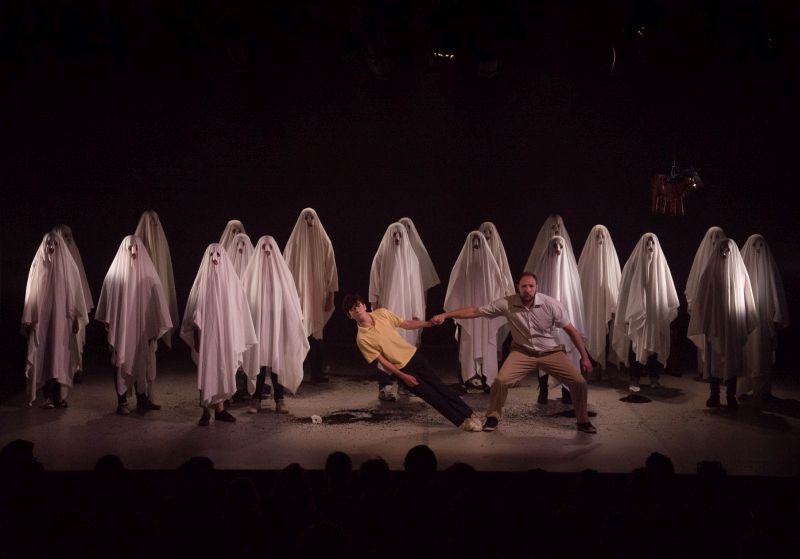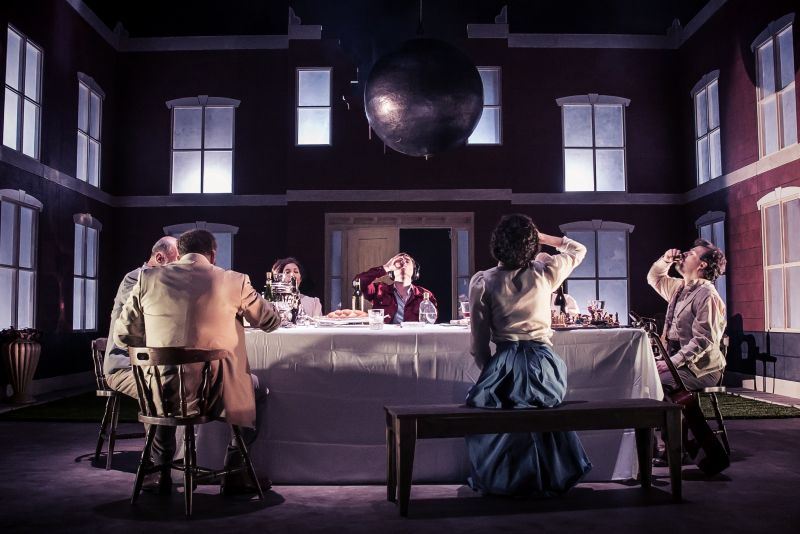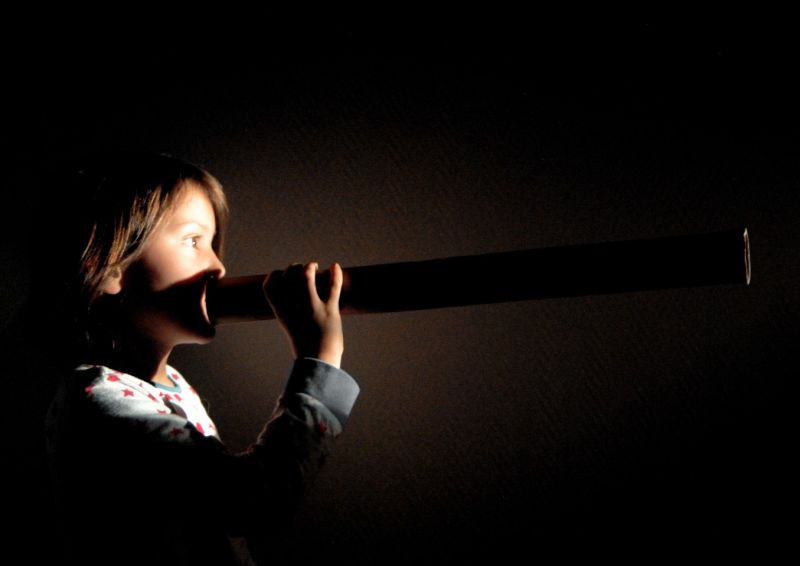 History History History is a translation of a Hungarian film – the film that was meant to be shown on the day of the Hungarian revolution in 1956, at the cinema which instead become the revolutionary headquarters. Pearson does not simply convert one language into another, but gives us a Hungarian history lesson on the political climate the film was made and released in, and the personal tale of the actor who plays the main character. Thus we encounter a film dubbed, subtitled, and censored: by the Hungarian government, by Deborah’s own humorous rewriting, and the voiceovers of her mother and grandmother.
History History History is a translation of a Hungarian film – the film that was meant to be shown on the day of the Hungarian revolution in 1956, at the cinema which instead become the revolutionary headquarters. Pearson does not simply convert one language into another, but gives us a Hungarian history lesson on the political climate the film was made and released in, and the personal tale of the actor who plays the main character. Thus we encounter a film dubbed, subtitled, and censored: by the Hungarian government, by Deborah’s own humorous rewriting, and the voiceovers of her mother and grandmother.
I look at the back of Deborah’s head gazing up at the cinema screen. I watch her watching it, looking into it, seeking out a clue. She reveals to us that the main character is played by her own grandfather.
She turns so that a light shines on her face as the film continues to play. The audience look for the resemblance between her and the man in the film. I can see it, something about the shape of her jaw, the darkness of her eyes. And in this moment a line is suddenly drawn back through time between her and 1956, when the film was made and the revolution occurred.
Through a short overhead projection demonstration of the political configuration of 1956 in Hungary, we understand that this film is pinned down by political relations between the film industry and a changing government. So much so that the film is made but never released, and the lead actor flees the country with his family. This performance succinctly stamps out the political as personal by detailing the conditions and consequences of revolution and migration on one family.
Deborah’s mother’s voice is played over the film, and we listen to her calmly translate it. I enjoy her accent and the familiarity of her and her daughter’s interactions. It is a charming way to watch a film, and situates me in Deborah’s own childhood: the film a relic for their family. Her grandmother’s voice is also played, her accent is stronger, and I notice a folding of Hungarian into Canadian that can be heard through the voices of these three generations. Her grandmother starts to really get at the heart of the situation: how she was committed to bringing her children up in a free country and how they weren’t actually at the uprising and… well, there was something else, but Deborah censors it. She talks about compassion, and I understand that she is protecting something of her family’s own suffering, that isn’t for our listening pleasure.
The story and the way it gradually opens is intriguing and sensitive, but what I find most interesting is the suggestion of the underwhelming quality of history, as Deborah says; this happened and then that happened and then this happened and then that happened. There is an inevitable chaos and reorganisation in the story told, the story of history and I do already know it. It’s like my own story, with different nationalities, different uprisings and with a movie star.
I am left considering what history is – is it what is written or filmed? Is it the reality or the story that follows? Is it our relatives, or ancestors? The invisible lines that go all the way back through the gunfire and beyond? Deborah Pearson is written into the history of the Hungarian revolution, and in this performance she evolves from a woman with a film into a hidden history present.









